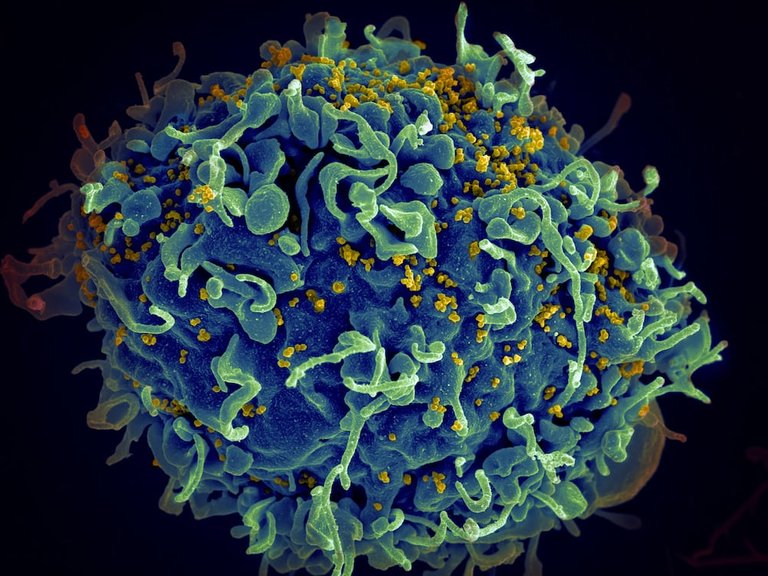Do you know someone who's living with HIV? Do you or someone you know take care of a person with HIV? Does the thought of someone with HIV putting your health at risk make you uncomfortable? If so, we want to hear from you. We're a non-profit organization dedicated to ending the public stigma attached to HIV/AIDS and open discussions about HIV and AIDs.
A Forum for People With HIV is a place where people who are positive and those who are curious about being positive can come together to learn, share experiences, and discuss topics related to living with or being treated for HIV/AIDS. We want this site to be the premier resource for information on Hiv and Aids both before becoming infected and after treatment has begun.
We understand that everyone is different when it comes to their tolerance of all things related to Hiv/Aids. But, regardless of how much you may feel like prying in other people's personal lives at first, we encourage you to give us a chance.
After all, once you connect with others in the community who have been through the same thing as you, there's no telling where else your interest in learning more about Hiv might take you!
What is the Difference Between Aids and HIV?

While both Aids and HIV are common infections that can be treated with medication, there are important differences between the two. The most important of these is that Aids is usually the result of an infected person's choice, while HIV is the result of a specific infection that is spread by contact with bodily fluids such as blood, semen, or vaginal fluids.
Additionally, Aids can be treated, while HIV can't. Aids is curable, while HIV is not. So, while both can result in difficulties in one's life, such as relationship, work, and social obligations, one of the main differences between the two is that Aids is treatable, while HIV is not.
Both Aids and HIV are caused by viruses. Viruses are small, usually self-replicating (bacteria cannot survive outside of the body), and round. Aids is a type of viral infection, while HIV is a type of bacterial infection. The two viruses that cause Aids and HIV are very similar, making it difficult to differentiate their cause.
They also have the same symptoms, which include having a flu-like body temperature, Sore throat, Sore muscles, and Having a yellowish tinge to the skin/eyes. However, there are important distinctions between the two. For example, one of the main signs of Aids is a chapped, cracked, or dry mouth. Also, Aids is caused by the Human Immunodeficiency Virus (HIV), while HIV is the name given to the infection caused by the pox viruses.
How Many People Are Affected By AIDS Each Year?
Although both Aids and HIV are rare diseases, they are both considered epidemics because they're widespread in certain populations. People who are most at risk of contracting Aids are people in countries where the HIV/AIDS pandemic was very recent, such as South Africa, Uganda, and Haiti. However, anyone can become infected with either Aids or HIV.

In the United States, about 30,000 people are living with HIV/AIDS, including about 10,000 people who are unaware that they have the infection. That means about 12,000 people are living with HIV/AIDS but are unaware that they are infected. This percentage is expected to rise, as awareness of the pandemic and the need to protect one's own health is the first step to contracting either Aids or HIV.
Like any disease, taking medication for HIV/AIDS does not mean that you won't experience negative side effects. In fact, these side effects are likely to be more frequent and intense with the use of certain medications. Side effects can vary from mild to life-threatening, and some people may experience them only after starting a certain medication.
Medications used to treat or prevent Aids can have significant side effects. For example, certain medications used to treat high blood pressure can cause dizziness, weakness, and blurry vision. As with any medication, be sure to tell your doctor about any medications that you are currently taking, as well as any you might be thinking about taking, in order to ensure the best possible treatment.
Helping People Who Are Living With HIV/AIDS Get Well
Although it is important to help those who are living with HIV/AIDS get well, it is also important to help them get healthy. That means that people with HIV/AIDS should eat a healthy, balanced diet and get enough sleep. They should also try to lose weight if they are experiencing an increased appetite.
Besides the information above, A Forum for People With HIV is also filled with useful resources and groups that are dedicated to helping people with HIV/Aids.
(1). https://www.who.int/health-topics/hiv-aids#tab=tab_1
(2). https://www.mayoclinic.org/diseases-conditions/hiv-aids/symptoms-causes/syc-20373524
(3). https://www.cdc.gov/hiv/basics/whatishiv.html
(4).https://www.nhs.uk/conditions/hiv-and-aids/
(5). https://www.hiv.gov/hiv-basics/overview/about-hiv-and-aids/what-are-hiv-and-aids
Thanks for your contribution to the STEMsocial community. Feel free to join us on discord to get to know the rest of us!
Please consider delegating to the @stemsocial account (85% of the curation rewards are returned).
Thanks for including @stemsocial as a beneficiary, which gives you stronger support.